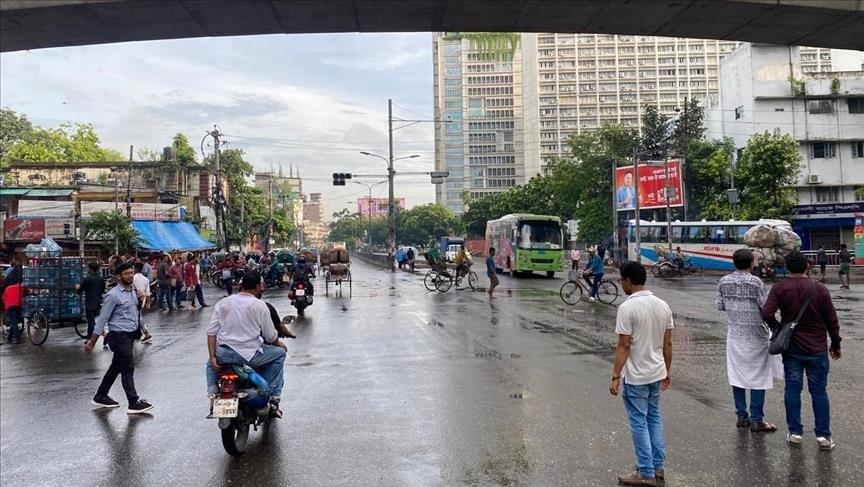Bangladesh declares national mourning in memory of protest violence victims
Mourning period will allow nation to 'reflect on the tragic loss of life and express solidarity with the victims' families,' says official

DHAKA, Bangladesh
Bangladesh has announced a national mourning day on Tuesday in memory of the victims of recent protests over quota reforms in government jobs.
Prime Minister Sheikh Hasina has called on religious communities across the country to offer prayers for the deceased and those injured in the protests, according to Cabinet Secretary Mahbub Hossain, who made the announcement on Monday following a meeting at the prime minister's office.
The mourning period will allow the nation to "reflect on the tragic loss of life and express solidarity with the victims' families," he said.
Hossain asked citizens to wear black badges to "honor and mourn the deceased."
The government continues to monitor the situation "closely and hopes for a peaceful resolution to the crisis," the official added.
During the cabinet meeting, Home Minister Asaduzzaman Kamal presented a report on the nationwide situation amid ongoing protests over quota reforms in government jobs.
The government said at least 150 lives have been lost in the unrest so far.
However, the Naya Diganta daily published a list of 266 individuals, many of whom were students killed by gunshot wounds during the violent protests.
Meanwhile, Prothom Alo, the largest national daily, mentioned that over 6,700 people have received treatment in 31 hospitals across Dhaka alone.
The ongoing curfew remains in place as some student protesters have returned to the streets in various parts of the capital.
Students held protests at Jahangirnagar University on the outskirts of the capital and at Rajshahi University in the northern part of Bangladesh.
Police sources confirmed that at least a dozen protesters were arrested in different areas of Dhaka.
Rights watchdog Amnesty International urged Bangladeshi authorities to "immediately stop the blanket hunt for students and opposition members."
Clashes began on July 15 between police and protesters demanding an end to a quota that reserved 30% of government jobs for relatives of veterans who fought in the 1971 war of independence.
The Supreme Court later ordered the government to scale back job quotas. The 30% quota for veterans’ descendants was reduced to 5%, and the quotas for ethnic minorities, transgender people, and disabled individuals were limited to 2%.








